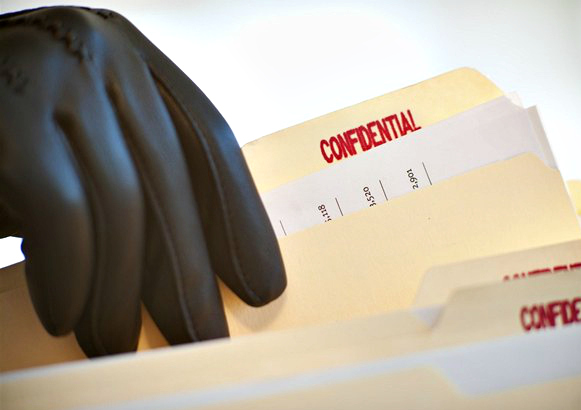By Paula C. P. de Sousa and Marco A. Verdugo
Best Best & Krieger LLP
Cities, counties, water agencies and school districts have some of our most personal information, including our date of birth, Social Security number, driver’s license number and medical information. This is the type of personal information that identity thieves thrive upon. While the extent of data breaches of local public agency information is not definitively documented, the Privacy Rights Clearinghouse – a nonprofit aimed at raising awareness of personal privacy issues – notes that 656 government data breaches have occurred nationwide since 2005. And, according to the California Attorney General, more than 2.5 million Californians were put at risk by data breaches in 2012. Such breaches have caused billions of dollars in financial losses and can take months, and even years, to wipe off an individual’s record.
Although existing California law requires businesses and state agencies to notify affected consumers when there has been a breach in the security of their information, the law has previously exempted local public agencies from the disclosure requirement. However, Assembly Bill 1149 and Senate Bill 46, which were recently signed into law and take effect this Jan. 1, extend the requirements of California’s information privacy breach notice law to all public agencies and expand the scope of personal information that prompts a disclosure of a security breach.
In 2003, California’s first security breach notification law went into effect, and was based on the premise that individuals have a right to know when a data breach has occurred and affected them. If consumers are made aware that their personal information may have been compromised, the lawmakers believed, they can take steps to protect themselves from fraud or identity theft. Personal information that would spark a required notification under the 2003 law included the individual’s first name or first initial and last name in combination with one or more of the following data elements: Social Security number, driver’s license number, California identification card number, account number, credit or debit card number in combination with any required security code, access code or password that would permit access to an individual’s financial account, medical information or health information.
AB 1149 expands this disclosure requirement to apply to a breach of computerized data that is owned, licensed or maintained by any county, city, school district, municipal corporation, special district or other local public agency. Further, SB 46 expands the scope of personal information subject to security breach disclosure requirements to include a user name or e-mail address, in combination with a password or security question and answer, that permits access to an online account.
New Disclosure Requirements
Starting Jan. 1, local public agencies are required to disclose when unencrypted data is believed to have been acquired by an unauthorized person. This disclosure must be made as quickly as possible and without unreasonable delay. The notice must be written in plain language and include:
1. The name and contact information of the agency.
2. A list of the types of personal information compromised.
3. The time and date of the breach.
4. The length of any delays between the breach and notice. Such delays could be caused by law enforcement investigations.
5. A general description of the incident.
6. Contact information for credit reporting agencies.
The agency may also include information about the agency’s response and advice on preventing fraud and identity theft after a breach.
Notice may generally take the form of a written notice or an electronic notice. A so-called substitute notice may be used if the notification would cost more than $250,000, include more than 500,000 people, or if the agency does not have adequate contact information. The substitute notice must include e-mail notice where possible, a clearly noticeable posting on the agency’s website, and notification to a major statewide media organization as well as the California Office of Information Security. Additionally, agencies are required to share notices going to more than 500 California residents with the Attorney General’s Office. Agencies that already maintain their own breach notification procedures for personal information, provide notice in compliance with those procedures, and otherwise comply with the timing requirements of the law are deemed in compliance with the law.
Additionally, SB 46 specifies that, in the case of a breach of a user name or e-mail address, in combination with a password or security question, the responsible agency may comply with the notification requirement by providing the security breach notification in electronic form and direct the person whose information has been breached to promptly change his or her user name or security question as applicable, or take other appropriate steps. SB 46 further specifies that in the case of a breach of specified personal information involving log-in credentials of an e-mail account, the responsible person or agency should not send the security breach notification to an e-mail address, but may instead comply with the notification requirement by another method that provides clear and conspicuous notice.
Establishing Protocol
Agencies that do not have existing notification procedures are advised to establish a protocol in order to timely respond in the event of a data breach. Local public agencies should develop methods to quickly gather the information required for the notice. In addition, local public agencies should institute a system to effectively communicate the information required in the notice within the allowable timeframe. In some situations, an automated notification system may be appropriate. Local public agencies also will need to develop the capability to quickly determine when a substitute notice is acceptable.
Additionally, because the law only requires disclosure for unencrypted data, local public agencies are encouraged to encrypt digital personal information. This effective security measure protects individuals and also exempts agencies from the law’s disclosure requirement.
While AB 1149 and SB 46 create more responsibility for local public agencies, mandatory notification ensures that residents are made aware of the breach, allowing them to take appropriate action to mitigate or prevent potential financial losses due to fraudulent activity. Furthermore, the local public agencies’ costs of complying with the new law may be reimbursed by the state. To determine whether the mandatory notification requirements constitute state-reimbursable mandates, local public agencies will likely need to file a test claim with the Commission on State Mandates. If the commission determines parts or all of the notification requirements are state mandates, then local public agencies will be able to apply to the California Legislature for reimbursement of costs associated with notification.
* * *
 Paula C. P. de Sousa is a partner in Best Best & Krieger LLP’s Special Districts practice group in the firm’s San Diego office, where she serves as general counsel to several special districts in the San Diego area. Her practice focuses on most areas of public agency representation, including the Political Reform Act, Brown Act, California Public Records Act and public works construction. She can be reached at paula.desousa@bbklaw.com.
Paula C. P. de Sousa is a partner in Best Best & Krieger LLP’s Special Districts practice group in the firm’s San Diego office, where she serves as general counsel to several special districts in the San Diego area. Her practice focuses on most areas of public agency representation, including the Political Reform Act, Brown Act, California Public Records Act and public works construction. She can be reached at paula.desousa@bbklaw.com.
 Marco A. Verdugo is an associate in BB&K’s Special Districts practice group where he advises public agency clients with a variety of local governance issues. He also assists public and private clients with transactional and litigation-related matters, including water law, public works construction, the California Environmental Quality Act and eminent domain. He can be reached at marco.verdugo@bbklaw.com.
Marco A. Verdugo is an associate in BB&K’s Special Districts practice group where he advises public agency clients with a variety of local governance issues. He also assists public and private clients with transactional and litigation-related matters, including water law, public works construction, the California Environmental Quality Act and eminent domain. He can be reached at marco.verdugo@bbklaw.com.





